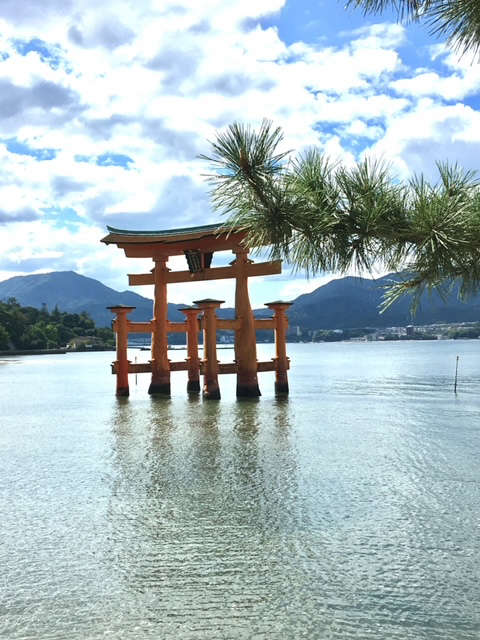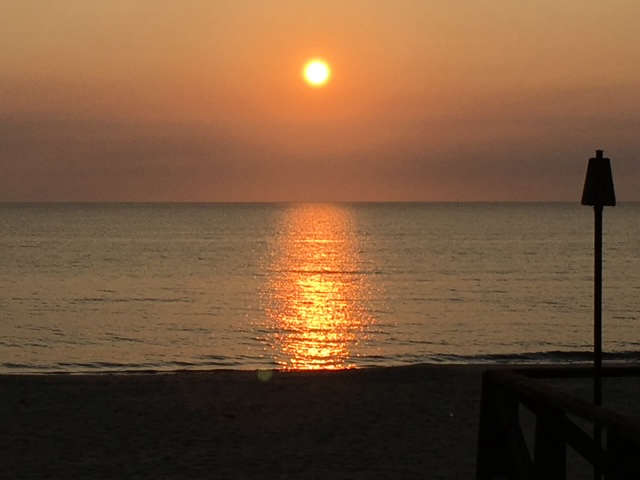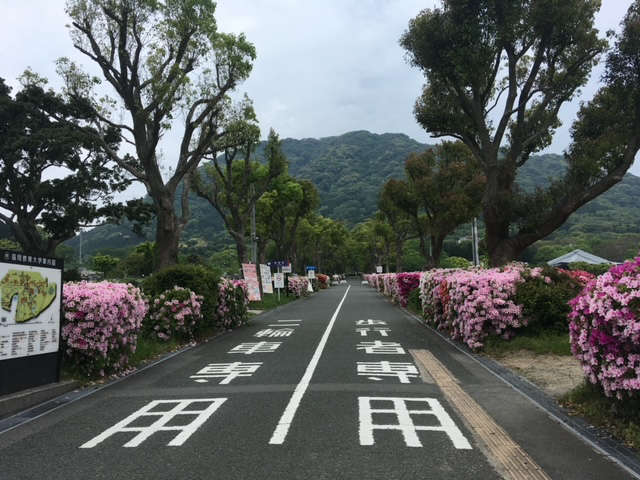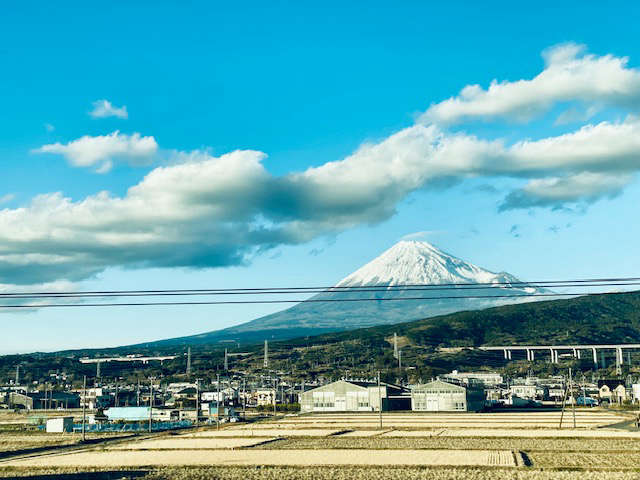
July 15 in Japan this year celebrates Umi no Hi (Marine Day, sometimes called Ocean Day or Sea Day in English). It is always on the third Monday in July, so the actual date changes each year depending upon the calendar year.
July 15 in Japan this year celebrates Umi no Hi (Marine Day, sometimes called Ocean Day or Sea Day in English). It is always on the third Monday in July, so the actual date changes each year depending upon the calendar year.
This national holiday gives people a chance to reflect upon the oceans that are such an integral and important part of Japanese daily life. No doubt, oceans and seas offer a bounty of not only food, but also commercial fishing and shipping commerce to the economy since Japanese cuisine and daily life depends so heavily upon all types of seafood, seaweed, and fish.
It also allows people a chance to take advantage of the many ocean-related activities and beaches Japan has to offer on this day. Japan, as an island nation, has many coasts and beaches which allows people an opportunity during the extreme heat of the summer to go and enjoy the sea and beaches.
Traditionally, the holiday was known as Marine Memorial Day (Umi no Kinen Bi) and was created originally to commemorate a sea voyage taken by Emperor Meiji in 1876 when he sailed around the northern part of the country in Hokkaido and Aomori. The significance of this voyage had to do with the ship he was on — the Meiji Maru — which was made in Scotland out of iron and was considered state-of-the-art during that time.

It wasn’t until the mid-1990s, however, that the day was officially designated as a national holiday, and by being celebrated only on a Monday, it made up part of the “Happy Monday” holiday system where holidays are observed on a Monday so people can have a three-day weekend. Today, it is just one of sixteen national or public holidays that Japan celebrates each year and is the first of the summer-related holidays.
The rainy season is either finished or nearly finished by the time Marine Day is celebrated, meaning it is swelteringly hot and people are ready to get out and enjoy the coolness of the ocean water and breezy winds of the beaches. I ask my university students each year, after the holiday, how many of them actually visited a beach or swam in an ocean during the long weekend, and surprisingly, a goodly number of them say that they indeed take the day as an opportunity to go to a beach to enjoy the sea.
Many university clubs will organize a trip to the beach for its members. They often go swimming, surfing, diving, or snorkeling, and then they have a barbecue on the beach. This year, however, we are still in the throes of the rainy season with heavy rain forecast on the day, so I doubt if many people will be going to the beach this year.
Those who enjoy ocean fishing will sometimes prepare the fish they catch on the beach with friends to eat in a barbeque-like setting. I am not much of an ocean person, meaning that I appreciate the water but am not a fan of swimming in the ocean or baking my body in the sun on the beach (I look like a lobster after a very short time in the sun). When I was younger, though, I certainly loved it, but as I age, it just doesn’t have the same appeal it once did.

Cities and villages that are located on the ocean or sea will often sponsor activities for the locals to enjoy the water and beaches. Some organize beach cleanups, as well, and have firework displays. Sometimes, aquariums will host events to help spread the idea of appreciating marine life more deeply and to be more consciously aware of the environment. It is a great opportunity for children to learn about sea life and the oceans at these very well kept and maintained museums and businesses.
Because Japan practices Shintoism, and a central tenet of this belief system is to revere nature, which revolves around praying to the nature spirits, and divine deities that are connected to the seas and oceans, many people will visit Shinto shrines that are located near the oceans and seas on this day (main photo of the Shinto Tori gate in the water at Miyajima with the mountains in the background).
Then in August, another nature-related holiday occurs called Yama no hi (or Mountain Day). Similar to Ocean Day, this holiday offers people a chance to visit and appreciate the beautiful mountains that Japan has in abundance (more than 70% of Japan is mountainous). This is the newest of the national holidays, having started in 2016.
No doubt the most famous and revered mountain in Japan is Mount Fuji (3775 meters) and is probably one of the most easily recognized mountains in the world, even outside of Japan. Many haiku have been written to honor Mount Fuji, as well as countless paintings painted in her honor featuring her beautifully shaped cone and peak.

My university happens to be located on a mountain, and it is a popular destination for alpine and hiking groups to climb anytime of the year (photo). But especially on Mountain Day, it is quite crowded with trekkers and climbers.
I am happy to report that I have climbed it myself, as well as Mount Iwaki in Hirosaki, Aomori, and I even made it halfway up Mount Fuji before bad weather caused us to have to turn around and give up climbing to the top.
Mountain Day is always on August 11 and I was told by an elderly friend that this date was chosen because the kanji character for 8, which August is the eighth month, looks like a mountain ( 八 ), and the number 11 resembles (marginally) two trees, so this date was selected as the official date to commemorate Mountain Day.
Just like the oceans, mountains are believed to possess sacred and spiritual energies, so the Shinto religion also reveres mountains due to the fact that mountains contain a plethora of nature spirits or kami. Many Shinto shrines can be found deep in the mountains all over Japan. Mountains are also considered to be the gathering points for the spirits of ancestors, hence making them sacred and spiritually significant.

Besides Mount Fuji (photo), there are two other mountains that are considered spiritually sacred and the three form Sanreizan, or “Three Holy/Sacred Mountains.” The other two are Mount Hakusan (in Ishikawa Prefecture) and Mount Tateyama (in Toyama Prefecture). All three are considered to contain spiritual energies and sacred powers.
I really do appreciate living in Japan where I can enjoy the sea and mountains anytime and without much effort. Coming from Indiana, that is largely flat with no mountains and certainly no oceans, I have learned to appreciate these aspects of nature since moving to Japan.
I also like how national holidays in Japan will encourage its citizens to appreciate the natural beauty of the country by designating specific days during the year to value and respect these natural features of the country.





